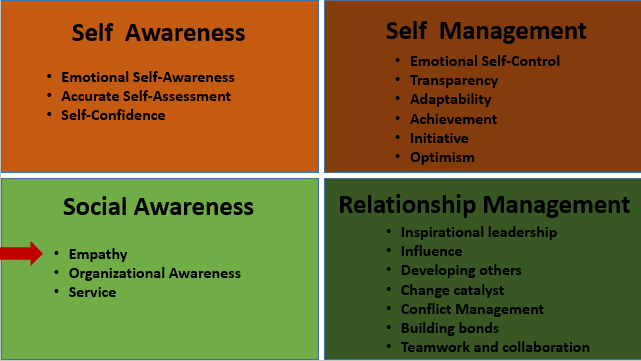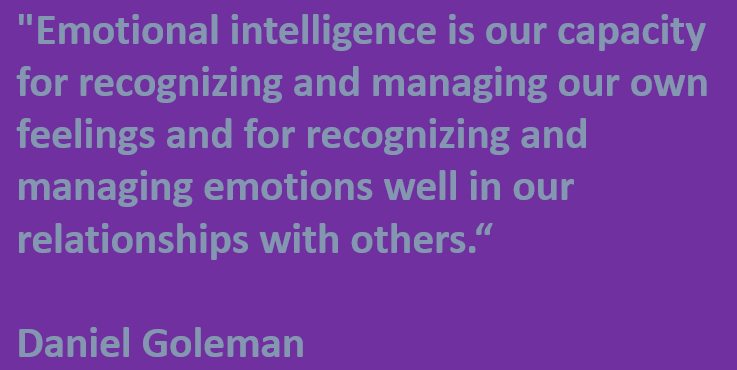Emotional Intelligence Domains and Competencies
Self-Awareness
- Emotional self-awareness: Reading one’s own emotions and recognizing their impact; using ‘gut sense’ to guide decisions
- Accurate self-assessment: Knowing one’s strengths and limits
- Self-confidence: A sound sense of one’s self worth and capabilities
Self-Management
- Emotional self-control: Keeping disruptive emotions and impulses under control
- Transparency: Displaying honesty and integrity; trustworthiness
- Adaptability: Flexibility in adapting to changing situations or overcoming obstacles
- Achievement: The drive to improve performance to meet inner standards of excellence
- Initiative: Readiness to act and seize opportunities
- Optimism: Seeing the upside in events
Social Competence: These capabilities determine how we manage relationships.
Social Awareness
- Empathy: Sensing other’s emotions, understanding their perspective, and taking active interest in their concerns
- Organizational awareness: Reading the currents, decision networks, and politics at the organizational level
- Service: Recognizing and meeting follower, client, or customer needs
Relationship Management
- Inspirational leadership: Guiding and motivating with a compelling vision
- Influence: Wielding a range of tactics for persuasion
- Developing others: Bolstering others’ abilities through feedback and guidance
- Change catalyst: Initiating, managing, and leading in a new direction
- Conflict management: Resolving disagreements
- Building bonds: Cultivating and maintaining a web of relationships
- Teamwork and collaboration: Cooperation and team building
Source: Primal Leadership, Learning to lead with emotional intelligence. Daniel Goleman, Richard Boyatzis and Anne McKee





